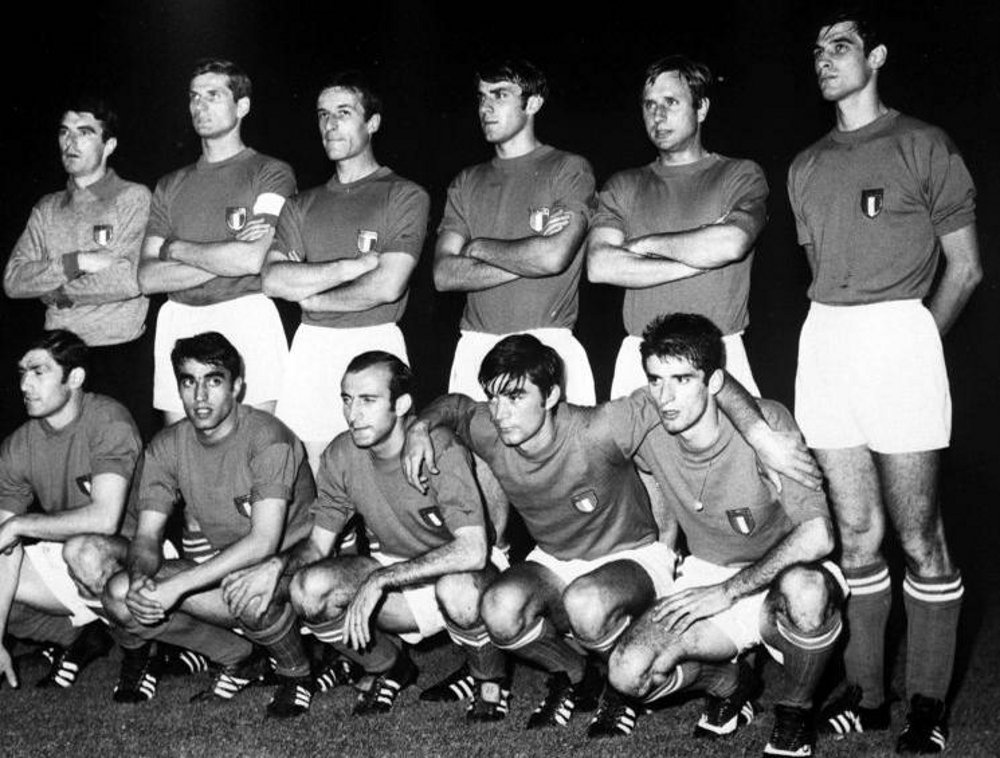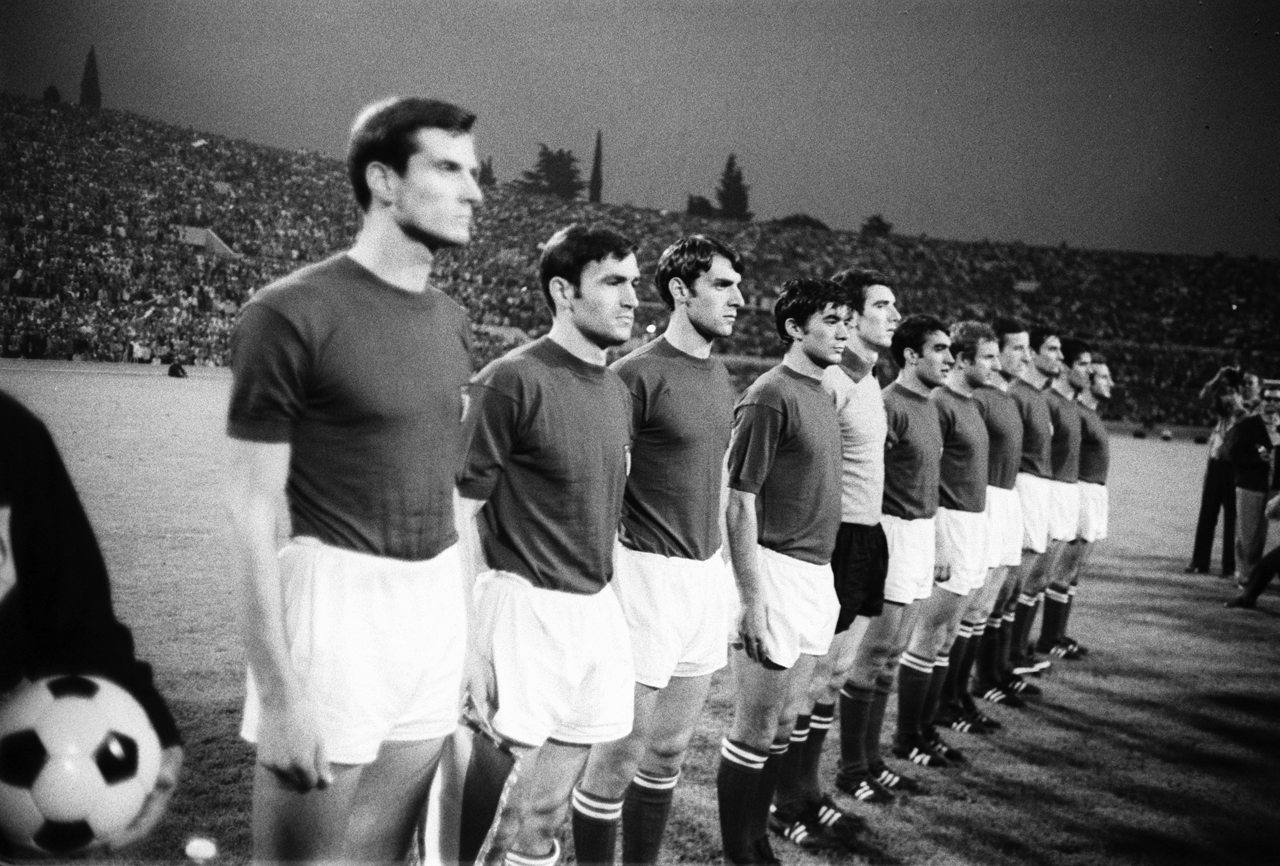Cult Heroes and European Icons: Coin flip guides Italy to Euro 1968 victory
During this summer's Euro 2016 in France, theScore will be taking a look at notable previous winners of the quadrennial continental tournament.
Nearly a half-century before the UEFA European Championship expanded to a record 24 nations and captivated football fans worldwide, the tournament was a three-tiered competition whose final stage in 1968 featured four teams: Italy, Yugoslavia, England, and the Soviet Union.
As unusual as the format may appear, the circumstances that surround Italy's fortuitous spot in the finals are even more offbeat.
Sometimes a side needs more than just skill to win, and few know this better than the Italians.
An Azzurri side out for revenge
Prior to the tournament, 31 nations were divided into eight groups, with the winner of each pool advancing to a quarter-final stage. The victors then progressed to the four-team competition held in Italy, who was named host only after the Azzurri qualified by besting Bulgaria in the quarters, 4-3 on aggregate.

Italy was desperate to bounce back from an underwhelming World Cup campaign two years earlier in England, when Edmondo Fabbri's lot finished third in Group 4 behind the Soviets and North Koreans. The Azzurri were stunned by the Asian minnows 1-0 in Middlesbrough, marking the first time a nation not from Europe or the Americas progressed to the quarter-final stage.
That embarrassment carried massive consequences for the pre-tournament favourites, as the Azzurri were bitterly condemned upon their return to Italy. Goal-scorer Pak Doo-Ik became a national hero in North Korea, while the Italian national team became football's laughing stock.
Two years later, Italy was two victories from a first European title and an opportunity to sweep its World Cup distress under the rug.
An Italian squad that featured future icon Dino Zoff, Milan midfielder Gianni Rivera, Bologna deity Giacomo Bulgarelli, and Inter Milan legend Giacinto Facchetti hosted the Soviet Union at the Stadio San Paolo in Naples on June 5, with the hard-fought clash ending in a scoreless draw.
Italy wasn't just looking to make up for a dismal showing two years earlier: the Soviet side had bested them 1-0 at Roker Park in Sunderland.
Fateful flip to advance by chance
With both sides hampered by injuries, a defensive affair required extra time. The Soviets were without pint-sized Igor Chislenko, who scored the only goal in defeat of Italy two years before, while Italian playmaker Rivera was forced off prior to the interval, following a collision with Valentin Afonin.

Extra time solved nothing, resulting in a goalless draw, which was likely the fairest result. Yugoslavia awaited the winner for the final in Rome after the Balkans bested defending World Cup champions England 1-0 three days earlier.
What happened next may seem bizarre. Years later, Azzurri captain Facchetti recounted the circumstances that surrounded Italy's fortuitous progression.
"I went up with the Russian captain," said Facchetti. "We went down to the dressing rooms together, accompanied by two administrators from the two teams.
"The referee pulled out an old coin and I called tails. It was the right call and Italy were through to the final. I went racing upstairs as the stadium was still full and about 70,000 fans were waiting to hear the result. My celebrations told them that they could celebrate an Italian victory."
A date with destiny
Three days after Italy advanced by virtue of good fortune, the Azzurri hosted Yugoslavia at the Stadio Olimpico.
Trailing for most of the match courtesy of Dragan Dzajic's second goal in two matches, Italy again pulled victory from the jaws of defeat when Angelo Domenghini's free-kick rocket leveled matters 10 minutes from time.

Italian supporters in attendance can hardly be blamed for feeling like they'd seen this all before, as again, extra time solved nothing. The match official called the two captains to the centre circle, but instead of determining the winner of the third European Championship by the flip of a coin, a replay was scheduled for two days later on June 10.
With a desire to match Yugoslavia's power and pace, Italian gaffer Ferruccio Valcareggi made five changes, including adding Cagliari legend Luigi "Gigi" Riva, who returned to the squad after a leg break. Riva scored in the 12th minute before Pietro Anastasi doubled the lead 19 minutes later to cement Italy's third major tournament victory after hoisting the 1934 and 1938 World Cups.
Sometimes it's better to be lucky than to be good.